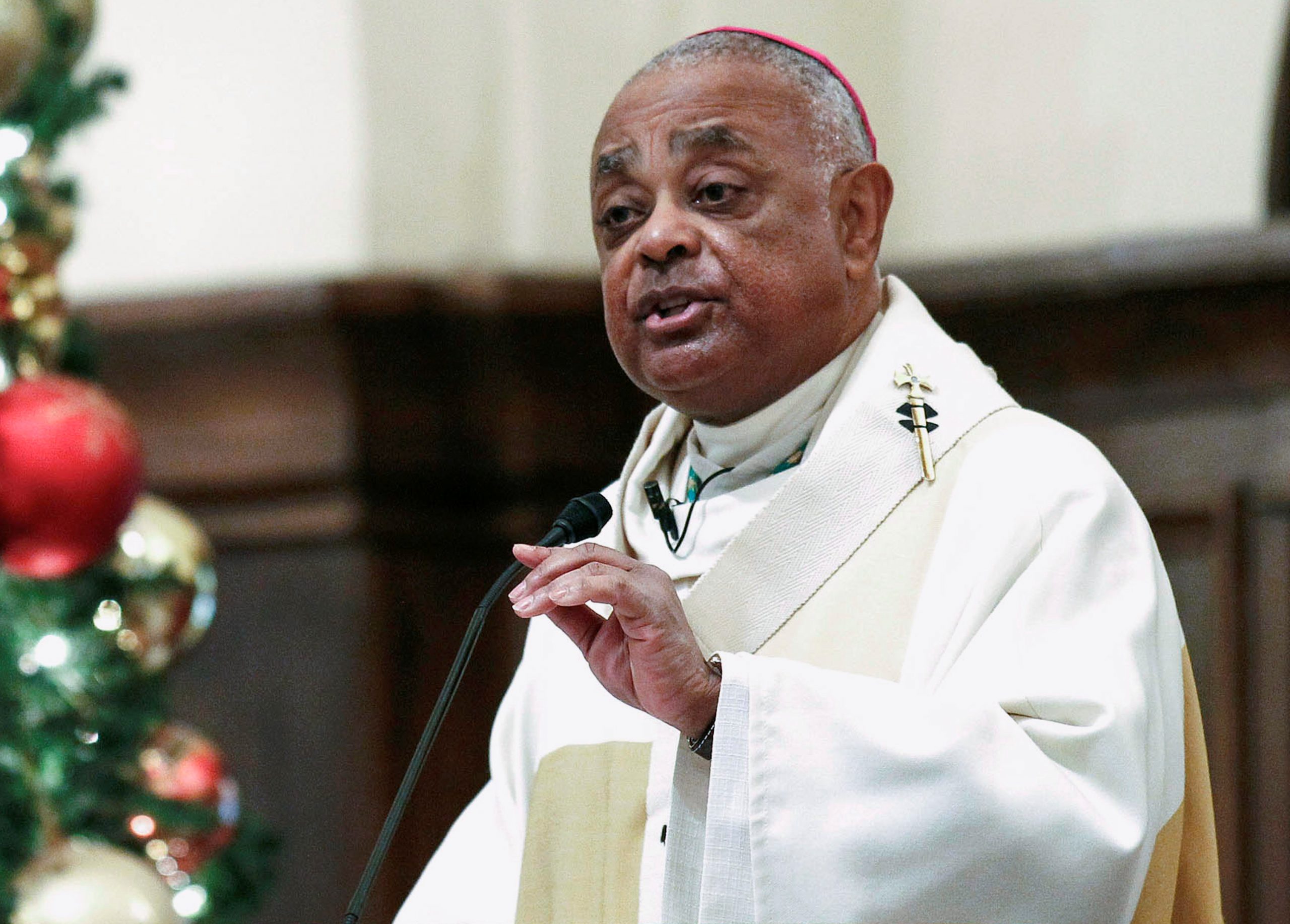Wilton Gregory, the archbishop of Washington, D.C. who this week will become the first African-American cardinal, said on Tuesday he wanted to find common ground with the incoming U.S. administration despite disagreements on some issues.
Gregory, who clashed with President Donald Trump earlier this year, is one of the 13 Roman Catholic Church prelates whom Pope Francis will raise to the rank of cardinal on Saturday.
The American Church is divided over many issues, including abortion. Conservative Catholics have criticised Joe Biden, who will become the first Catholic president since John F. Kennedy in 1961, for his support of abortion rights.
“I have always seen myself as someone who is charged with being in dialogue and in conversation, so I hope that my conversation with the new administration reflects that, knowing full well that there are areas about which we disagree, but also searching for those areas where we can find common ground,” Gregory said.
Some U.S. conservative bishops say Biden, who attends Mass regularly, should be denied the sacrament of communion. Biden says he is personally opposed to abortion but cannot impose the view on others.
Last week, the head of the U.S. bishops’ conference said Biden’s position on abortion rights created a “difficult and complex situation” and announced the formation of a working group to study its ramifications.
Gregory, 72, viewed as a moderate, spoke to Reuters from a guest house in the Vatican where he has placed himself in quarantine ahead of the ceremony with the pope.
BRIDGE DIFFERENCES
He said he wanted to work with the incoming U.S. administration to look for “where we can find things that we can do together for the betterment of the American community, for the people of the archdiocese in general. I want to be one who engages people in conversation.”
In June, Gregory criticised Trump’s visit to a Washington shrine honouring Pope John Paul II, a day after police and armed soldiers used tear gas and rubber bullets to clear protesters so Trump could be photographed in front of a historic Washington church holding a Bible.
At the time, Gregory said he found it “baffling and reprehensible that any Catholic facility would allow itself to be so egregiously misused and manipulated”.
Asked about that statement, Gregory said Catholic institutions, such as parishes, schools, hospitals, and social justice and service activities, should be models to others.
“We have to be models of how we can invite people to bridge the differences that divide us and seek the areas where we are on the same page,” Gregory said.
“Our institutions must reflect the truth of the gospel, which is an invitation for unity and harmony rather than be used in the divisive way,” he said.
An outspoken civil rights advocate, Gregory has addressed the death of George Floyd, a Black man who died after a white Minneapolis police officer knelt on his neck for almost nine minutes in May.
Gregory said he hoped to be able to use his new title to be a bridge builder between the African-American Catholic community and the worldwide Church and would be “inviting all of us to engage in a more fruitful dialogue on racial and social justice issues.”
(Editing by Janet Lawrence)

























 Continue with Google
Continue with Google